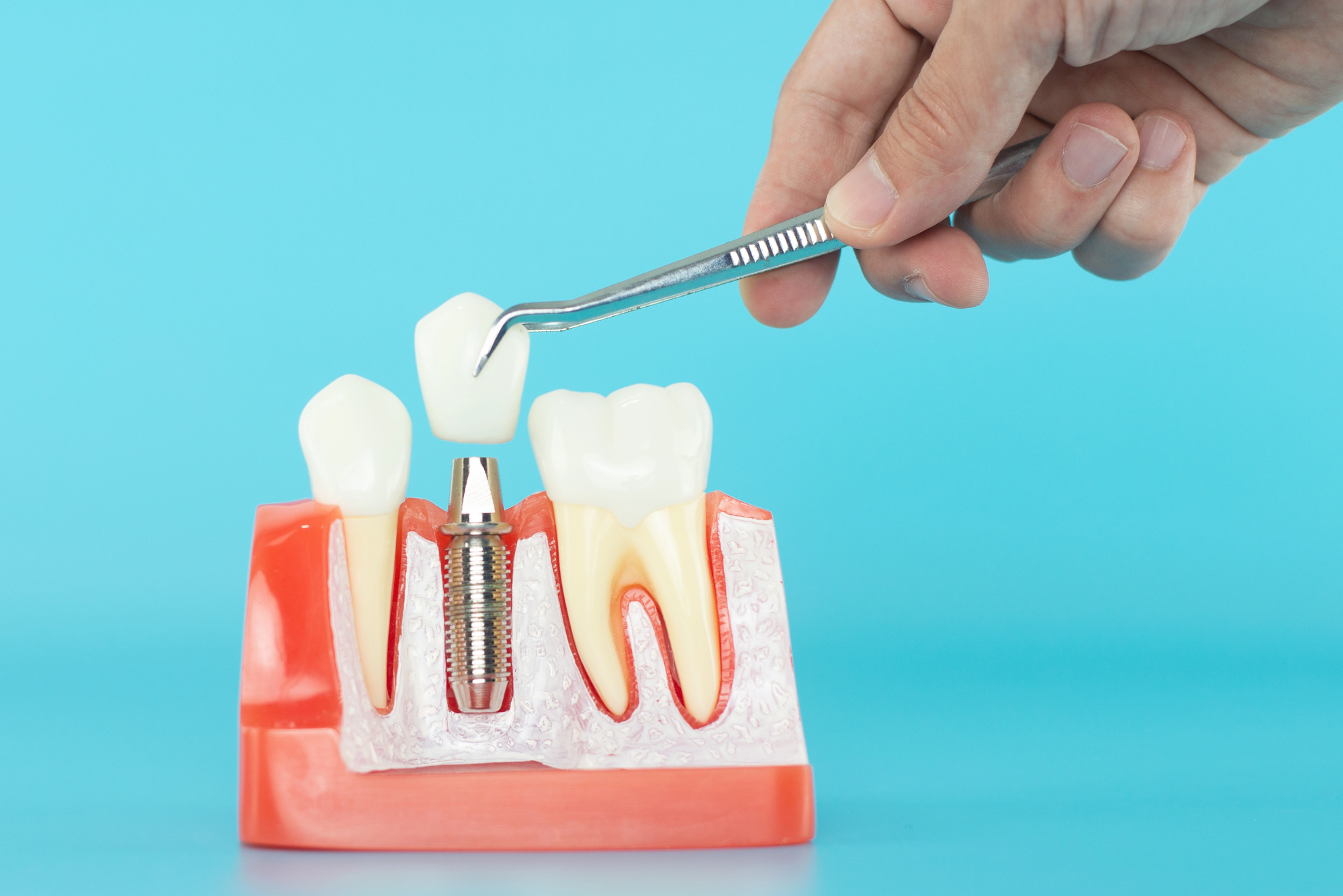Understanding Dental Implants and Osteoporosis: Guidance from a Waterloo Dentist

Osteoporosis leads to a deterioration of bones in the body, affecting the jawbone that holds teeth and dental implants. Because implants rely on strong bone for stability, people with osteoporosis often wonder if they are good candidates. With the right evaluation, planning, and surgical approach, implants can still be a successful option.
Below are key considerations for patients with osteoporosis who are exploring dental implants, with commentary from Ashraf Dentistry on each topic. (Source: Healthline, Can You Get Dental Implants If You Have Osteoporosis?, Medically reviewed by Jennifer Archibald, DDS — Written by Jared C. Pistoia, ND on May 16, 2023, https://www.healthline.com/health/osteoporosis/osteoporosis-and-dental-implants ).
Can Osteoporosis Affect Whether Dental Implants Are Right for You?
Osteoporosis weakens bones, potentially affecting the jawbone’s ability to support an implant. However, research shows that implant survival rates for people with osteoporosis can be comparable to those without the condition.
Ashraf Dentistry explains, “Osteoporosis does not always prevent someone from getting dental implants. What matters most is assessing the quality and quantity of jawbone and planning treatment around the patient’s overall bone health.”
How Bone Loss Impacts the Success of Dental Implants
Bone loss around an implant—known as peri‑implant bone loss—can compromise stability and increase the risk of failure over time. While the implant may initially integrate successfully, ongoing bone loss can reduce its lifespan.
Ashraf Dentistry shares, “Bone loss can gradually weaken the support around an implant. Even small changes in bone height or width near the implant can, over time, reduce its stability and long‑term success.”
How much bone loss is too much for implants?
Adequate bone volume is essential to anchor an implant. Severe bone loss may require grafting or alternative treatment options before implants can be placed.
Ashraf Dentistry comments, “The decision depends on both the height and width of the available bone. Digital scans help determine whether the existing bone can support an implant or whether bone grafting is needed first.”
Can bisphosphonates affect dental implants?
Bisphosphonates and similar osteoporosis medications can influence bone healing. While oral bisphosphonates carry low risk, high‑dose or intravenous forms increase the risk of jaw complications such as osteonecrosis, especially after surgery.
Ashraf Dentistry notes, “Patients taking osteoporosis medications should always discuss this with both their dentist and doctor. The type of medication, the dose, and how long it has been used all affect decisions about implant placement and timing.”
The Role of Bone Grafting in Preparing for Dental Implants
If bone density or volume is inadequate, bone grafting may be recommended to create a stronger foundation for the implant. This is common for patients who have had tooth loss for some time or who have systemic bone density issues.
Ashraf Dentistry explains, “Bone grafting is often performed when there is not enough natural bone to hold the implant securely. In cases of osteoporosis, grafting can help restore bone volume before placing the implant.”
Unsuccessful dental implants
Dental implants may fail for a variety of reasons, such as insufficient bone support, delayed or incomplete healing, post‑surgical infections, or inflammatory conditions like peri‑implantitis. While osteoporosis itself is not the leading cause of implant failure, reduced bone density can be a contributing factor if not addressed properly.
Ashraf Dentistry highlights, “When implants fail, it is often because several factors come together—such as bone quality, surgical technique, or poor healing. Patients with osteoporosis may require closer follow‑up to reduce these risks.”
For people with osteoporosis, dental implants can still be a safe and effective tooth replacement solution, but success depends on careful evaluation, planning, and follow‑up.
Ashraf Dentistry states, “Osteoporosis does not always mean implants are impossible. With the right planning, review of medications, and monitoring after placement, implants can work well for many patients.”
If you’re considering implants and have concerns about bone health, schedule a consultation with a Waterloo dental provider to explore the best treatment plan.
